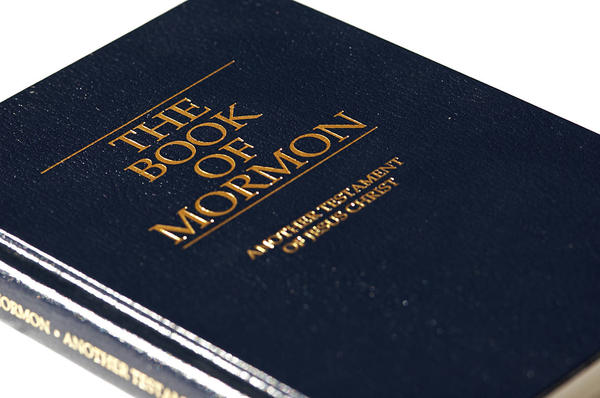Question
Gramps,
The Anti-Nephi-Lehies allowed themselves to be killed rather than fight after they had repented of their sins. Apparently they doubted that the Lord either would or could forgive them if they ever sinned again. This seems to diminish the power of the Atonement. Further, they said it would be sinful to fight to defend themselves and their families, something clearly contrary to many other scriptures, including several in the Book of Alma itself. Are we learning the wrong lessons from these guys?
Scott
Answer
Dear Scott,
The story of the Anti-Nephi-Lehies (later called the people of Ammon), from the time they made a covenant and chose to submit to being murdered rather than defend themselves, to the time when their sons became the stripling warriors to fight in their stead, is an example of when sore repentance requires, as Elder Richard G. Scott put it, “taller and wider fortifications between their faithful lives and the unrighteous behavior of their past.” Elder Scott addresses your question in detail, including the responsibility of fathers to defend their families. I’ll focus on the core of your question: Why was it right for the people of Ammon to enter into and keep a covenant to never again take up arms against their enemies?
Let’s review the start of the story of the people of Ammon. When they found the Lamanites preparing to come against them, no one would take up arms. The king commanded them not to. The people of Ammon believed themselves guilty of murders in the past and felt it “has been all that we could do” to repent and believed they had been forgiven. They had faith that if they were killed, they would “go to our God and shall be saved.” They feared that if they should again use their weapons to shed the blood of man it might not be possible for them to obtain forgiveness. Burying their swords would be a testimony to God that they would never return to their old sins of murder, theft, and idleness (verse 18).
After this, the people of Ammon went to the Nephites for protection. This account gives us another critical factor in explaining why this group needed to hold to their covenant not to take up arms again:
And behold, we will set our armies between the land Jershon and the land Nephi, that we may protect our brethren in the land Jershon; and this we do for our brethren, on account of their fear to take up arms against their brethren lest they should commit sin; and this their great fear came because of their sore repentance which they had, on account of their many murders and their awful wickedness. (emphasis mine) Alma 27:23
It is clear to me that the people of Ammon did not doubt the Lord’s ability to forgive; rather, they recognized how hard it was for them to repent sufficiently to obtain forgiveness. They understood that there was a serious risk of reverting to their old ways, going beyond self-defense into sin, and even reaching the point where they would choose not to repent. Again, as Elder Scott put it:
It is a fundamental truth that through the Atonement of Jesus Christ we can be cleansed. We can become virtuous and pure. However, sometimes our poor choices leave us with long-term consequences. One of the vital steps to complete repentance is to bear the short- and long-term consequences of our past sins. Their past choices had exposed these Ammonite fathers to a carnal appetite that could again become a point of vulnerability that Satan would attempt to exploit.
Satan will try to use our memory of any previous guilt to lure us back into his influence. We must be ever vigilant to avoid his enticements. Such was the case of the faithful Ammonite fathers. Even after their years of faithful living, it was imperative for them to protect themselves spiritually from any attraction to the memory of past sins.
Consider two people, one who has overcome an addiction and another who has never engaged in that addiction. The former addict must go to greater lengths to avoid temptation than the person who has never succumbed, or possibly never even felt the temptation. In the same way, the people of Ammon needed to keep far from temptation.
You asked if we are learning the wrong lessons. I believe there are many lessons to be learned from the stories of the people of Ammon. While some may perceive that it is a story teaching not to defend oneself ever, I believe the full story, complete with Captain Moroni’s conduct of the war and the stripling warriors’ part in the war, teaches otherwise. The one clear lesson is that once we have overcome sin, we should do all in our power to avoid even the temptation to repeat that sin.
While I hope that few of us have the appetite for violence that the people of Ammon overcame, each of us has weaknesses and sins that we struggle to overcome. Each of us has things that we must keep far away from to protect ourselves from powerful temptations. I hope that this comparison, and Elder Scott’s talk (I encourage you to read the whole thing) help you to understand why it was right for the people of Ammon to make and keep their unusual covenant despite the difficulties it surely caused them.
Gramps







